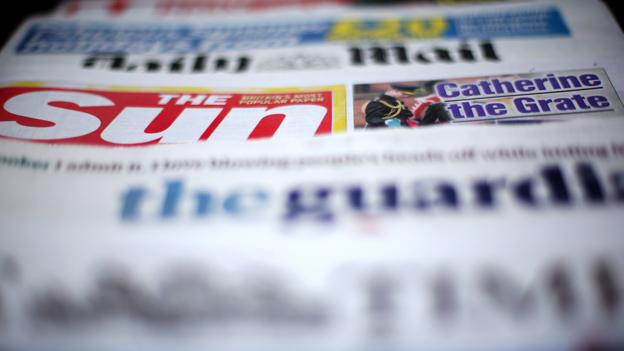New press self-regulation body 'not a fake', says Ipso chairman
- Published
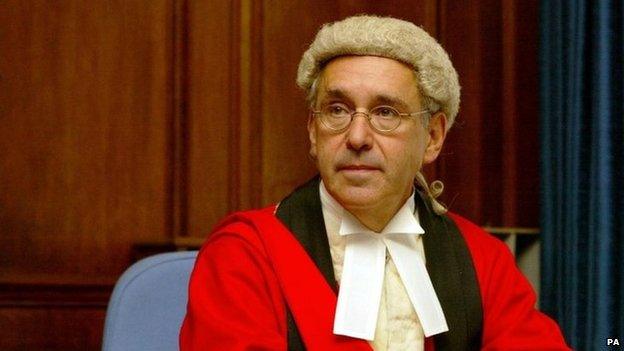
Sir Alan Moses said he had had lots of contact with campaigners
The chairman of a new press self-regulation body set up in the wake of the phone-hacking scandal says he wants to show critics it is not a "fake".
Sir Alan Moses heads the Independent Press Standards Organisation (Ipso) which begins its work on Monday.
Ipso has replaced the discredited Press Complaints Commission, although not all newspapers have signed up to it.
Sir Alan said he understood why campaigners felt the new body was a "sham" but wanted to prove them wrong.
'Speedy redress'
Sir Alan Moses tells the Today programme Ipso will be independent
Campaign group Hacked Off, which pushes for tougher regulation of the press, described Ipso as a "sub-standard regulator" which fell short of the principles set down in the Leveson report.
Sir Alan said newspapers would have 28 days to resolve a complaint before Ipso moved in to adjudicate.
He told BBC Radio 4's Today programme: "What is very important is those who feel they are victims of press abuse should not feel that they are at the mercy of the press during that initial period.
"People who can't afford to go to court must have some means of speedy and cheap redress."
Sir Alan said an independent figure would be appointed to oversee the work of Ipso and report publicly on its progress.
"No respectable board can operate without people looking and monitoring what we're going to do," he said.
"The critics, and people like Hacked Off and the Media Standards Trust, will be very important to our success, because we have to listen to them and hear from them how we're doing."
'No credibility'
Sir Brian Leveson led an inquiry into the ethics and practices of the press following public and political anger at phone hacking.
Among its recommendations, the report called for a tough new press regulator backed by statute.
A Royal Charter agreed by the main Westminster parties established a panel to independently verify a new regulator, although Ipso has not sought recognition from this.
A rival independent self-regulator, Impress, has been set up by a group of high-profile free speech campaigners, with the aim of becoming compliant with Leveson's requirements.
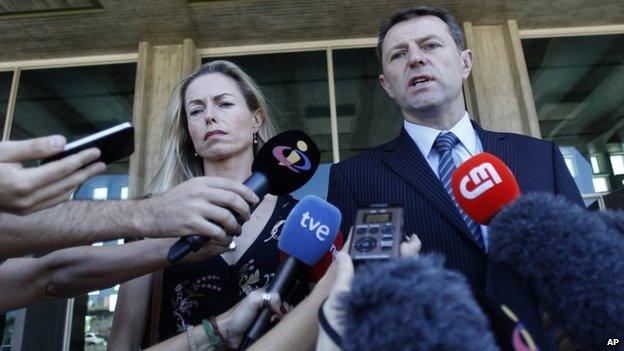
The McCanns told Leveson their treatment by the press had left them distraught
Earlier, former Court of Appeal judge Sir Alan said he had had a lot contact with hacking victims and opponents of Ipso.
He said that despite "losing my temper twice", he understood "distress and frustration" of Hacked Off's supporters such as Gerry and Kate McCann, parents of missing girl Madeleine.
"Of course they're angry, desperately angry. Of course they don't trust Ipso and they regard it as a fake and I'm not at all surprised but I want to show that they're wrong," he said.
'Wild, unruly press'
According to the Guardian newspaper, external, 30 victims of press intrusion have written to Sir Alan claiming: "In its current form, Ipso retains no credibility with us or with the wider British public."
While most newspapers have signed up to the new body, the Guardian, Financial Times, Independent and London Evening Standard have not.
Sir Alan said he would like to them join but their doing so was not "vital to its existence".
He added that the industry-funded regulator could "cost substantially more" than its predecessor the PCC.
Sir Alan also said Ipso would never intervene to "prevent publication in advance", adding: "Of course I want a wild, unruly press. The last thing I want is a boring press."
But victims of press intrusion have continued to criticise the body.
In June, Gemma Dowler, sister of murdered schoolgirl Milly Dowler, said Ipso was "just the newspapers looking after themselves".
Hacked Off executive director Joan Smith said: "Neither we, nor victims of press abuse, nor the wider public will accept a sham regulator that fails to meet the Leveson criteria of independence and effectiveness and which refuses to be subject to the audit that Lord Justice Leveson said was vital to prevent a repeat of the disastrous failures of the past."
- Published25 June 2014
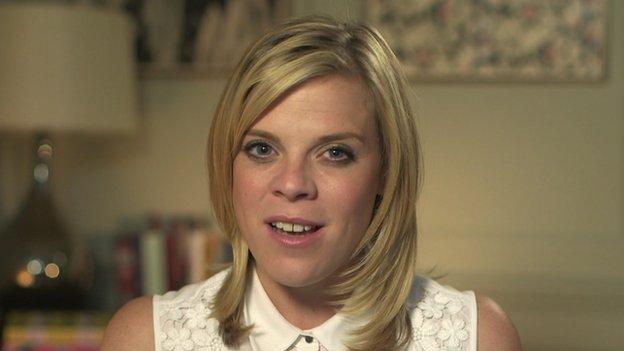
- Published24 June 2014
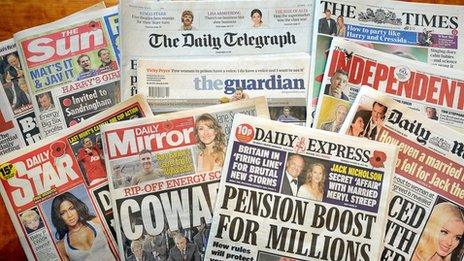
- Published30 October 2013
